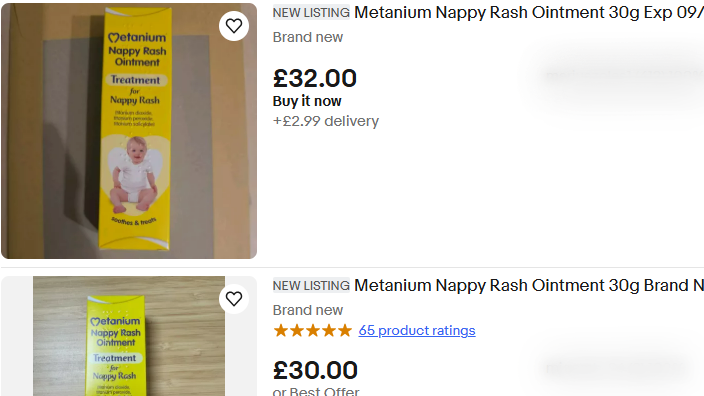Ointment appeal for disabled teen on 'last tube'

George Rabbett-Smith needs round the clock support following his suicide attempt in 2023
- Published
The family of a disabled teenager desperate to source a discontinued ointment said those selling it at inflated prices were "morally corrupt".
George Rabbett-Smith, from Bowes, County Durham, is minimally conscious after attempting to take his own life in 2023 when he was 17 and suffers with persistent pressure sores.
Metanium nappy rash ointment is the only product to have relieved his symptoms, his mother Hilary Rabbett said, but it was discontinued last year over supply issues.
The family is now down to their last tube and Ms Rabbett has hit out at online sellers charging £30 for a product which had retailed for less than £6.
She said her 19-year-old son's spasticity meant his skin was particularly vulnerable to damage, including pressure and moisture sores.
The family obtained Metanium on prescription after a range of other ointments proved unsatisfactory, but their supply is almost exhausted.
"There are others we can use, but they tend to be more oily," Mrs Rabbett said.
"They're not going to dry, they will lock in moisture damage and prevent more taking place, but they won't dry out any barrier damage already there.
"Anyone who has a pressure sore knows they are very painful and uncomfortable.
"For someone who can't express that pain and discomfort, as George can't, it is quite distressing."

George spends more than 20 hours a day in bed as a result of the brain injuries he sustained
Criticising the online sellers, she added: "To play on someone's vulnerability by selling something at £30 a tube with a RRP of about £6 is morally corrupt.
"But I guess times are hard and we all need to make money where we can."

The in-demand ointment is now being sold at inflated prices via online selling sites
An alternative version of Metanium remains on the shelves, but the product used by George's family - which was designed to treat, rather than simply prevent nappy rash - contains the active pharmaceutical ingredient Titanium Salicylate.
A petition to reinstate the product was signed by hundreds reliant on it to treat a variety of skin problems.
But manufacturers Thornton & Ross have no plans to bring it back, and no remaining stocks.
A spokeswoman said Titanium Salicylate could no longer be sourced "reliably or sustainably".
She said the decision to stop producing it was not taken lightly, adding: "We explored all avenues in our attempts to find an alternative sustainable and reliable source of the ingredient or suitable alternatives to the ingredient.
"Unfortunately, despite our strenuous efforts, we were unable to identify any other solution."
Follow BBC Tees on X,, external Facebook, external, Nextdoor and Instagram, external. Send your story ideas to northeastandcumbria@bbc.co.uk.
Related topics
More stories from the BBC
- Published15 April 2024

- Published5 May 2024
